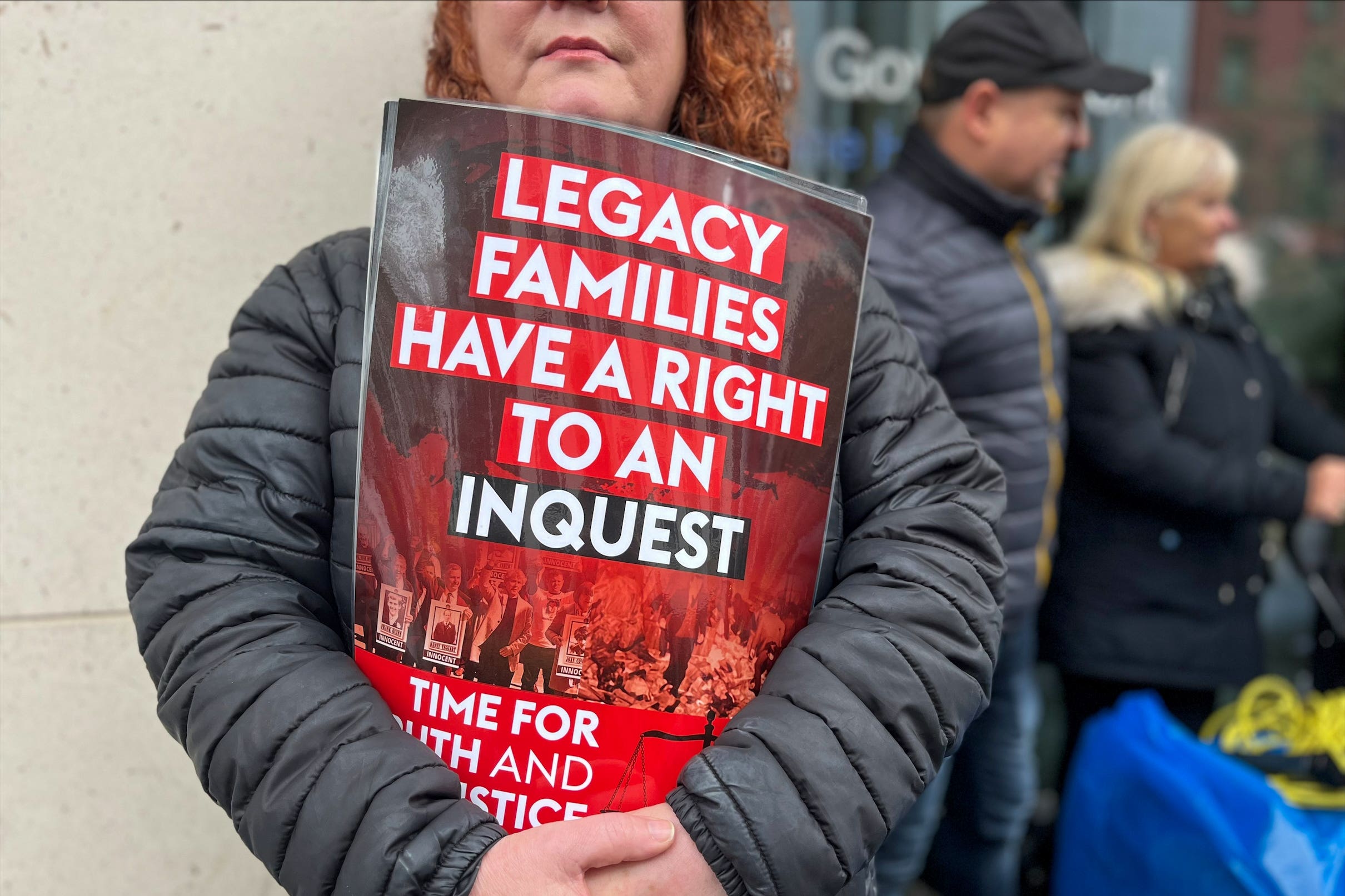UK Government ‘determined’ to pass Legacy Bill despite peers’ intervention
Victims groups, the main Stormont political parties and the Irish government have all expressed their opposition to the legislation.

Your support helps us to tell the story
From reproductive rights to climate change to Big Tech, The Independent is on the ground when the story is developing. Whether it's investigating the financials of Elon Musk's pro-Trump PAC or producing our latest documentary, 'The A Word', which shines a light on the American women fighting for reproductive rights, we know how important it is to parse out the facts from the messaging.
At such a critical moment in US history, we need reporters on the ground. Your donation allows us to keep sending journalists to speak to both sides of the story.
The Independent is trusted by Americans across the entire political spectrum. And unlike many other quality news outlets, we choose not to lock Americans out of our reporting and analysis with paywalls. We believe quality journalism should be available to everyone, paid for by those who can afford it.
Your support makes all the difference.The UK Government “remains determined” to pass its controversial Legacy legislation despite a significant element of the Bill being removed in the House of Lords, a spokesperson for the Northern Ireland Office has said.
The Northern Ireland Troubles (Legacy and Reconciliation) Bill proposed offering immunity from prosecution to those who committed crimes during the Troubles, if they co-operated with a truth-recovery body.
The legislation would also stop new inquests and civil cases taking place.
The House of Lords on Monday supported by 197 votes to 185, majority 12, a demand to remove the contentious immunity provision.
The UK Government remains determined, through the Northern Ireland Troubles (Legacy & Reconciliation) Bill, to deliver better outcomes for those most affected by the Troubles, and we maintain that this legislation is the best way of doing that
Removing this element of the Bill was led by Labour former Northern Ireland secretary Lord Murphy of Torfaen, who said the Bill was “almost universally condemned”.
Victims groups, the main Stormont political parties and the Irish government have all expressed their opposition to the Bill.
Speaking on Tuesday, a Northern Ireland Office spokesperson said the legislation remained the best way to deliver for victims of the Troubles.
“The UK Government remains determined, through the Northern Ireland Troubles (Legacy & Reconciliation) Bill, to deliver better outcomes for those most affected by the Troubles, and we maintain that this legislation is the best way of doing that,” they said.
The Government will continue to engage on the Bill as it progresses through its final parliamentary stages
“We acknowledge that this Bill contains uncomfortable and finely balanced choices, but we have to be realistic about what we can best deliver for families over a quarter-of-a-century after the Belfast (Good Friday) Agreement.
“The Government will continue to engage on the Bill as it progresses through its final parliamentary stages.”
The House of Lords did agree to some of the Government amendments, including shifting the date by which inquests needed to have concluded to May 1 2024.
The Legacy Bill will now return to the House of Commons where further changes, including reinstating the immunity provision, may be made by MPs.
Recent protests against the Legacy Bill have called on the Irish government to take an interstate case against the UK to the international court of the Council of Europe should the Bill pass, which Irish premier Leo Varadkar has said he would consider.